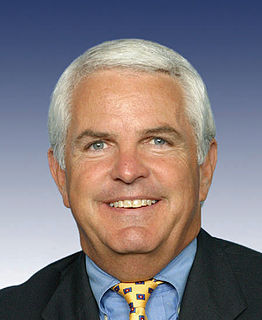A Quote by Uwe Reinhardt
The issue of universal coverage is not a matter of economics. Little more than 1 percent of GDP assigned to health could cover all. It is a matter of soul.
Related Quotes
Since the days of Harry Truman, Democrats have wanted universal health coverage, believing that if other industrialized countries can achieve it, surely the United States can. For Democrats, universal coverage speaks to America's sense of decency and compassion. Democrats also believe that it will lead to a healthier and more productive country.
People who believe in 'universal health care' show remarkably little interest - usually none - in finding out what that phrase turns out to mean in practice, in those countries where it already exists, such as Britain, Sweden or Canada. For one thing, 'universal health care' in these countries means months of waiting for surgery that Americans get in a matter of weeks or even days.
A possibility is that we see more and more leverage, and credit-to-GDP ratios rise once more to even higher levels; eventually the banking systems of all advanced economies reach magnitudes of 500 percent, 1000 percent or more of GDP, so that every economy starts to have financial systems that resemble recent cases like Switzerland, Ireland, Iceland, or Cyprus. That might be a very fragile world to live in.
I'm going to create tremendous jobs. And we're bringing GDP from, really, 1 percent, which is what it is now, and if Hillary Clinton got in, it will be less than zero. But we're bringing it from 1 percent up to 4 percent. And I actually think we can go higher than 4 percent. I think you can go to 5 percent or 6 percent.
I think we should have a universal, a shared cultural or societal goal, of universal health insurance coverage. That's completely different from saying the government can solve all of those problems, or that it can micromanage every aspect of the health delivery system. I think we know that it can't do that.


































